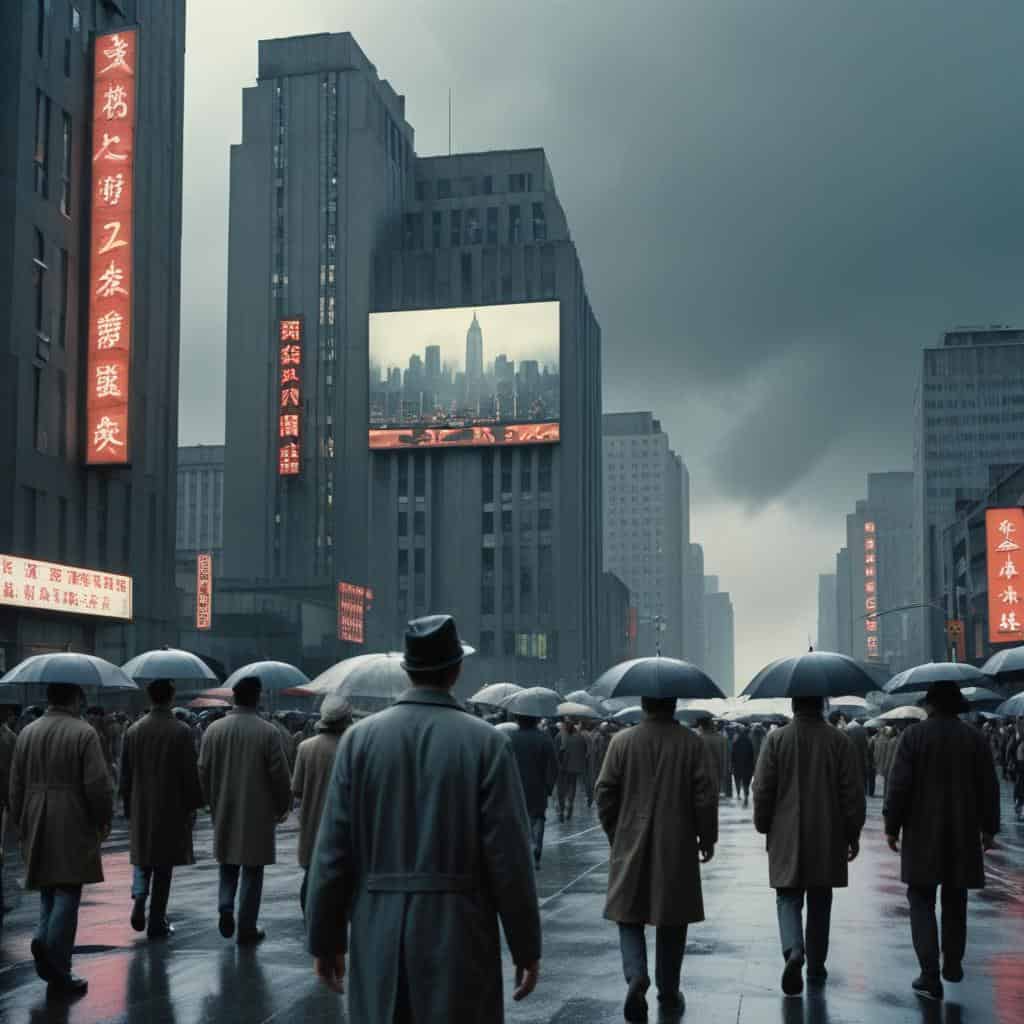George Orwell’s novel 1984 is a classic work of dystopian fiction that has captivated readers for decades. Set in a totalitarian society ruled by the Party and its leader, Big Brother, the novel explores themes of surveillance, propaganda, and the power of language.
The protagonist, Winston Smith, works for the Ministry of Truth, altering historical records to fit the Party’s narrative. Winston becomes entangled in a dangerous game of rebellion and betrayal as he begins questioning the oppressive regime and seeking the truth.
Through vivid descriptions and thought-provoking dialogue, Orwell paints a bleak picture of a society where individuality is suppressed and conformity is enforced at all costs. As readers delve into the world of 1984, they are confronted with chilling parallels to our modern society and are forced to grapple with questions of freedom, truth, and the nature of power.
List Of Characters
Winston Smith
Winston Smith is the protagonist of the novel. He is a low-ranking member of the ruling Party in Oceania who secretly rebels against the oppressive regime and begins a forbidden love affair with Julia.
Julia
Julia is Winston’s lover, a young woman who rebels against the Party’s control. She is independent and rebellious, seeking pleasure and freedom in a world of surveillance and repression.
Big Brother
Big Brother is the mysterious and omnipresent leader of the Party, worshipped by the citizens of Oceania as a god-like figure. His image is everywhere, reminding people of the Party’s absolute power and control.
O’Brien
O’Brien is a high-ranking member of the Inner Party who appears to be Winston’s ally and friend. However, he ultimately betrays Winston, revealing himself to be a loyal servant of the Party and a ruthless enforcer of its ideology.
Mr. Charrington
Mr. Charrington is the kindly old man who rents a room to Winston and Julia for their secret meetings. He is eventually revealed to be a member of the Thought Police, betraying Winston and Julia to the authorities.
Summary of 1984
Winston Smith
Winston Smith is a low-ranking member of the ruling Party in London, Oceania. He is a member of the Outer Party, and his job is to rewrite historical records to fit the Party’s version of the truth. Winston secretly hates the Party and longs to rebel against its oppressive regime.
Julia
Winston meets Julia, a woman who shares his hatred of the Party. They begin an illicit affair, meeting in secret locations away from the party’s prying eyes. Julia is a free spirit who enjoys defying the Party’s rules and restrictions.
Big Brother
Big Brother is the face of the Party, a mysterious figure who is always watching the citizens of Oceania. The Party uses Big Brother to symbolize their power and control over every aspect of people’s lives. Citizens are constantly reminded that “Big Brother is watching you.”
Room 101
Winston and Julia are eventually caught by the Thought Police, the Party’s secret police force. They are tortured and brainwashed until they betray each other. Winston is taken to Room 101, where he is confronted with his greatest fear – rats. He finally breaks down and betrays Julia, fully embracing the Party’s ideology.
Doublethink
The Party uses doublethink to control its citizens. Doublethink is the ability to hold two contradictory beliefs simultaneously and accept both as true. This allows the Party to manipulate people’s thoughts and actions without them even realizing it.
Newspeak
Newspeak is the official language of Oceania, designed to limit freedom of thought and expression. The Party constantly redefines and simplifies language to eliminate any ideas that could be used to challenge its authority. Newspeak is intended to make rebellious thoughts impossible to articulate.
Thoughtcrime
Thoughtcrime is any thinking that goes against the Party’s ideology. Even having rebellious thoughts is considered a crime, punishable by death. The Party uses surveillance and propaganda to monitor and control people’s thoughts, ensuring total obedience to their rule.
Ministry of Love
The Ministry of Love is where dissenters and rebels are taken to be “re-educated” and tortured until they confess their crimes and love Big Brother. The Party uses fear and pain to break people’s spirits and force them to submit to their authority. The Ministry of Love embodies the Party’s brutal and totalitarian control over its citizens.
Memory Hole
The Party uses memory holes to destroy evidence that contradicts their version of the truth. Documents, photographs, and records are all thrown into the memory holes to be incinerated and erased from history. This allows the Party to control the past and manipulate people’s perceptions of reality.
The End
In the end, Winston is completely broken and has fully embraced the Party’s ideology. He no longer has any rebellious thoughts and loves Big Brother. The novel ends with Winston sitting in a cafe, watching a telescreen, and feeling a sense of numb acceptance of his fate. 1984 is a chilling portrayal of a dystopian society where freedom and individuality are crushed.
Conclusion
Overall, George Orwell’s 1984 is a powerful and thought-provoking novel that explores the dangers of totalitarianism and the importance of individual freedom. The story of Winston Smith’s struggle against the oppressive Party serves as a stark warning about the potential consequences of unchecked government control. Orwell’s vivid depiction of a dystopian society reminds readers of the importance of critical thinking and vigilance in safeguarding democracy.
1984 remains relevant and influential literature that raises important questions about power, control, and the nature of truth. By examining how authoritarian regimes manipulate and subjugate their citizens, Orwell’s novel challenges readers to consider the implications of sacrificing personal liberties to pursue security.



